Soonae Lee-Fink still had the honour of meeting Franziska Donner-Rhee personally. In her book, Soonae Lee-Fink describes the meeting as follows:
"I had arrived at a board with two signposts on it. On the left, the path led to the Sogakdang, where Syngman Rhee's first cabinet had been housed, and on the right, it went to the main building. I looked to the left and saw, a little higher up, a small wooden house. Since I wanted to meet Mrs Rhee first, I took the turn to the right. Franziska Donner-Rhee greeted me with a pair of garden shears in her hand.
"Greetings, Soonae, I am happy to see you again!"
In her hanbok and with two braids wound around her head, she looked like a Korean grandmother.
"Greetings, Mrs Rhee. How are you?"
"Fine, on the whole. But I also feel these days that I have grown older and weaker. I am waiting for the time when I will see my husband again." She paused for a moment and smiled playfully. "But we had agreed on Fanny in Innsbruck, hadn't we?"
She laughed at these words. As I shook her hand, I noticed that she had aged considerably since we last met in Innsbruck.
"This hanbok suits you excellently. It's the first time I've seen you in traditional Korean clothing today."
"I always wear the hanbok at home. The doctor always liked to see me in it."
"May I present you with a little greeting from Austria - Austrian chocolate."
"Thank you, that is very kind of you. I love chocolate. Please, come in."
Francesca still lived in the old building, which was also used as a memorial to the first president. Her adopted son Insoo Rhee lived with his family in a modern new house. His adoptive mother could have moved in with him, but wanted to stay in the old house. She said that the smell in the house would help her keep the memories of Syngman.
In the main building, time seemed to have stood still since 1960. Dr Rhee had never renovated his private house. Although it was only October, I noticed the cool air of the interior when I entered. The heating was switched off.
Once inside, Fanny offered me tea, but I wanted to see the exhibition in the small museum first. The curiosity was just too great.
"Then we'll have tea later and I'll show you what memories we've gathered of the doctor here. Come along."
The majority of the rooms had been converted into showrooms. The living room, for example, had been preserved in its original state. The old furniture, telephone sets and typewriters were now considered antiques.
"The typewriter was the most important piece of equipment in our house. We used it not only at home, but also on all our trips. I typed many important documents on it."
I had already heard that Franziska had also worked for Syngman as a secretary and had typed important documents for him in English even when she was still First Lady. There was also extensive historical photographic material on display in the showrooms, as well as various items of clothing belonging to the Rhee couple, handwritten letters and other personal items. What struck me was that most of the furnishings had probably not originally been luxury items, even when they were newly acquired.
Apart from the exhibition rooms, Franziska only used the bedroom and the kitchen in her daily life. She slept on an old bed, and the rooms were very simply, almost spartanly furnished. Apparently she was a frugal and very independent old lady.
"Soonae, have you ever heard my husband's voice?"
"Of course. In my childhood I often heard it on the radio."
"Listen, I'm going to play something for you."
She switched on an old tape recorder. At first I heard only a crackle, but then clearly the voice of Dr. Rhee: "I am Rhee Syngman. To my 32 million Koreans, I address this message." The voice was really his. Slowly, memories from my childhood came up. Televisions had been very rare then, the preferred medium of the common people had been the radio. I remembered that there had also been a radio announcer who could imitate Dr Rhee's voice well. After his death, the impersonator continued to play this role and thus remained popular for a long time.
While I was listening to the president's voice and remembering times gone by, Franziska came out of the kitchen with a quince tea.
"When was this taken? I suppose before 1945?"
"It was a year after the Japanese bombed Pearl Harbour. In 1942."
She squinted her eyes, trying to remember.
"It must have been in June, after the US Navy had won a battle against Japan at Midway. The programme was broadcast by the Americans in East Asia. Syngman gave an address to the Korean people."
In a low voice, she quoted his words, "To my 32 million Koreans, I address this message: this is the Declaration of Independence, the first step to freedom, for you and for all other peoples now still suffering under the heel of Japanese oppression."
This visit was a good opportunity to broaden my knowledge about her
about her life and that of her husband. As she poured tea, not to be outdone as a hostess, she told me, "We were living in Washington, D.C. at the time. My husband and I had moved there from Hawaii to write a book."
"What book was it about?"
"It was titled, Japan Inside Out. Syngman wanted to warn
America about the Japanese. Wait a minute, I'll find it
in a moment." She ran her hand over the spines of a large shelf full of books.
shelf full of books and after a short search pulled out one of them.
out. It was written in Korean and about 250 pages long.
pages. It said, "Author: Syngman Rhee, translated by Jongik Lee.
by Jongik Lee."
"Was the book originally written in English?"
"Yes, because it was intended for the Americans. So, where should I
start?"
In her memory, she turned back the wheel of time ...
You can read more about the life of Franziska Donner-Rhee in our new publication "Franziska - First 'First Lady' of Korea"!


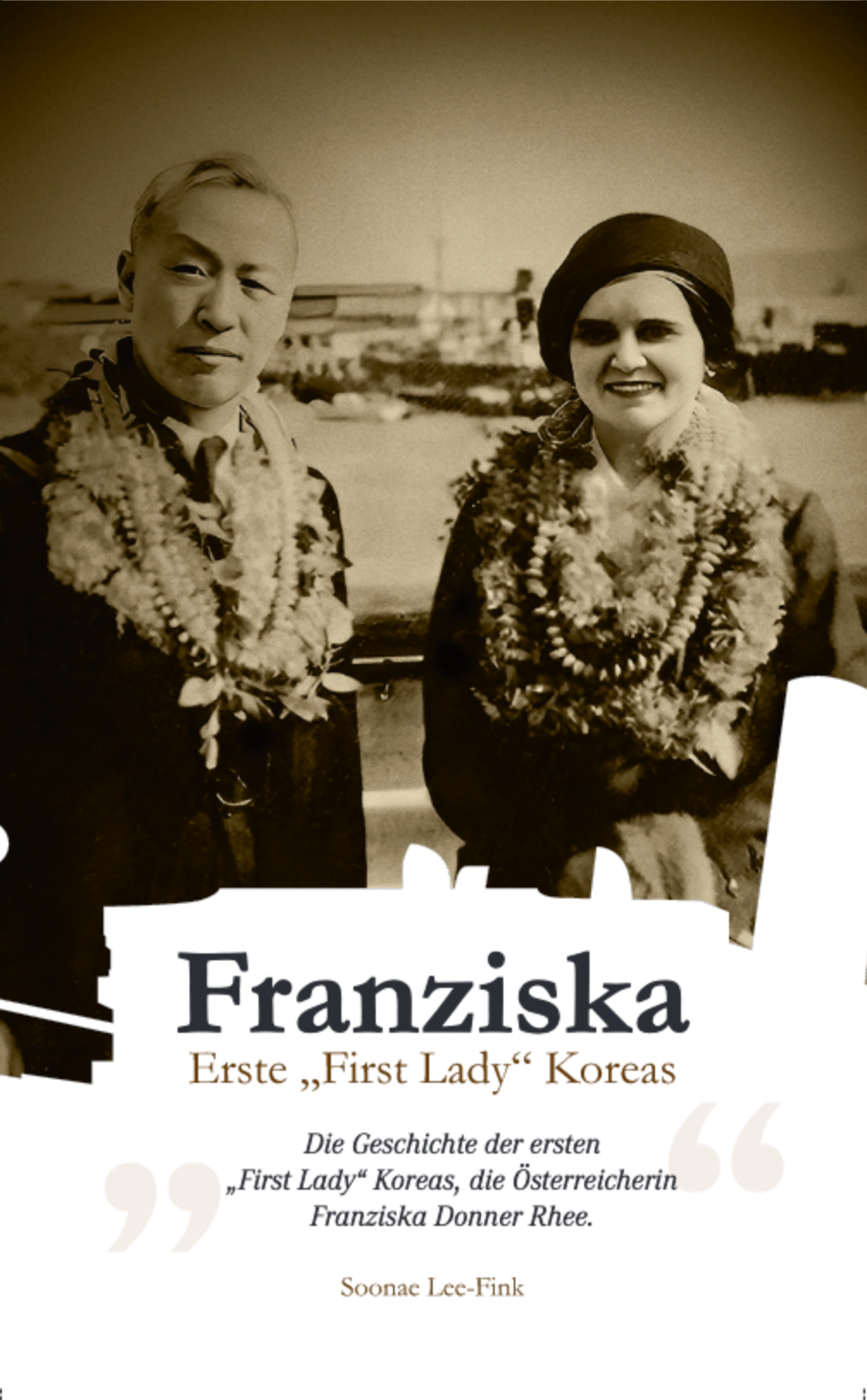
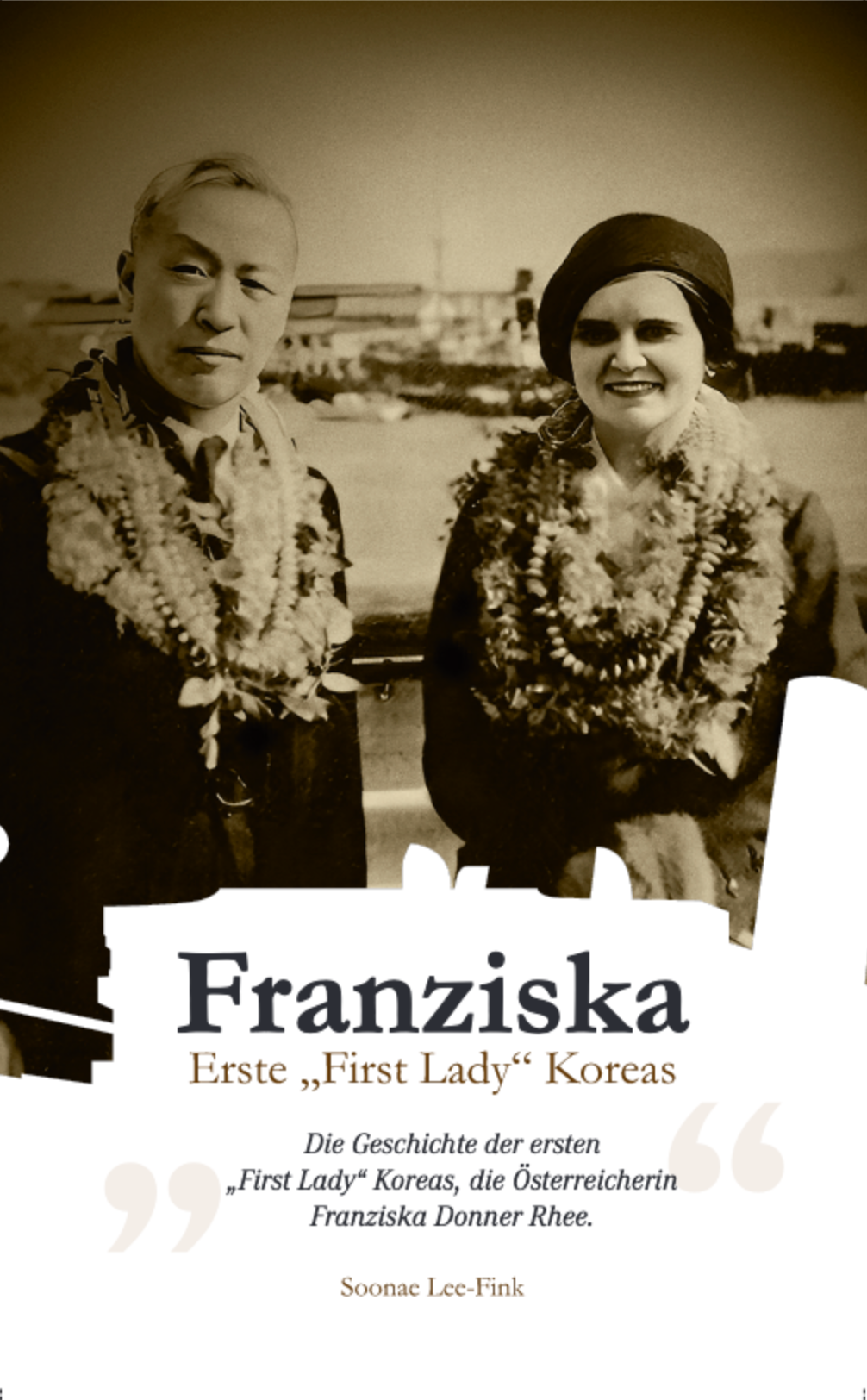
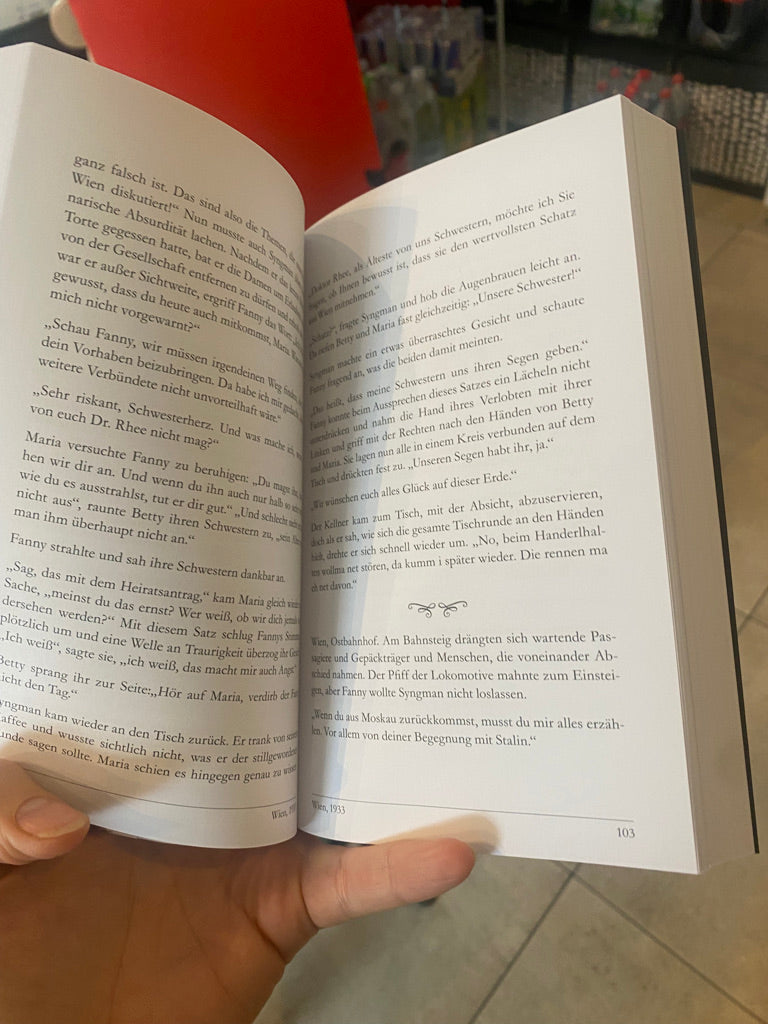
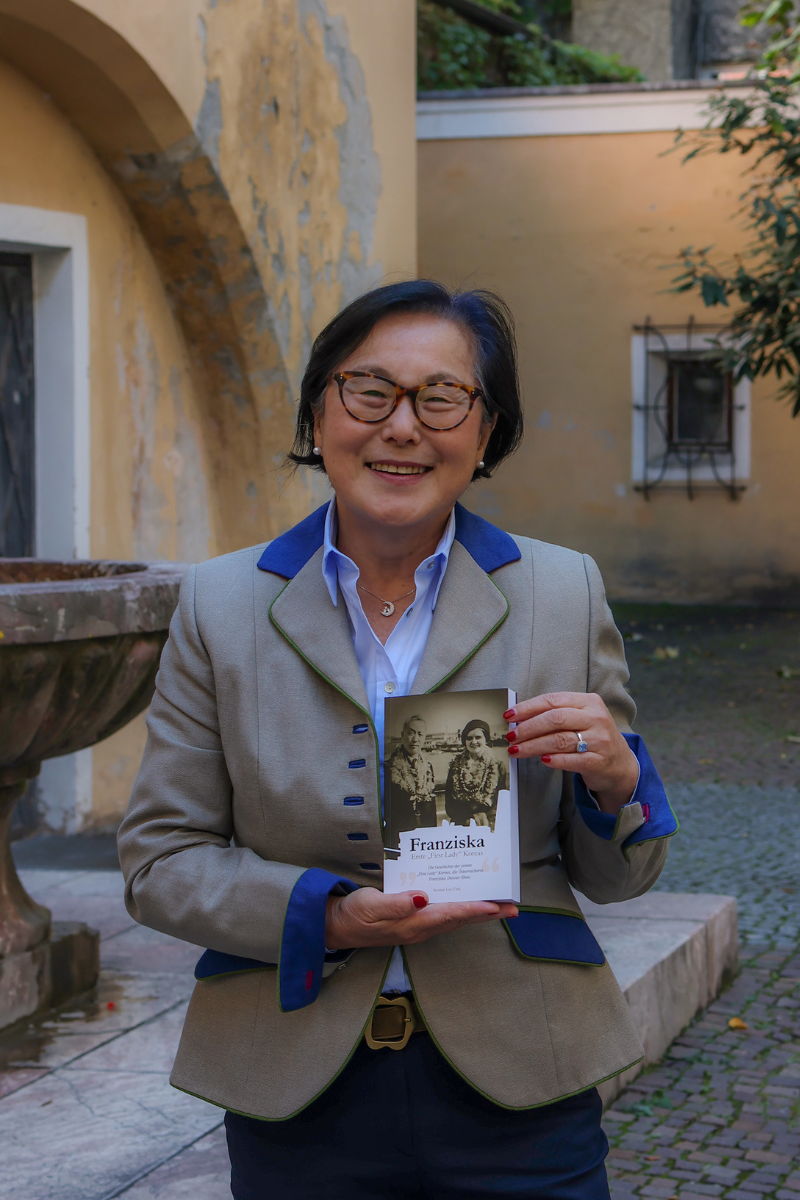
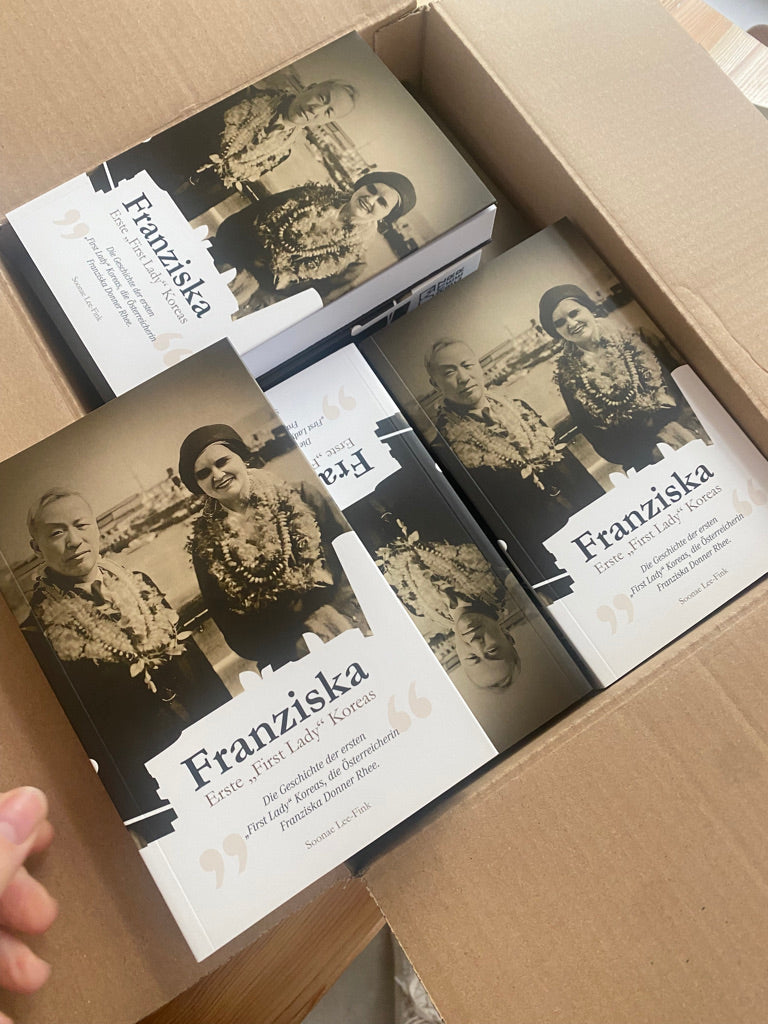
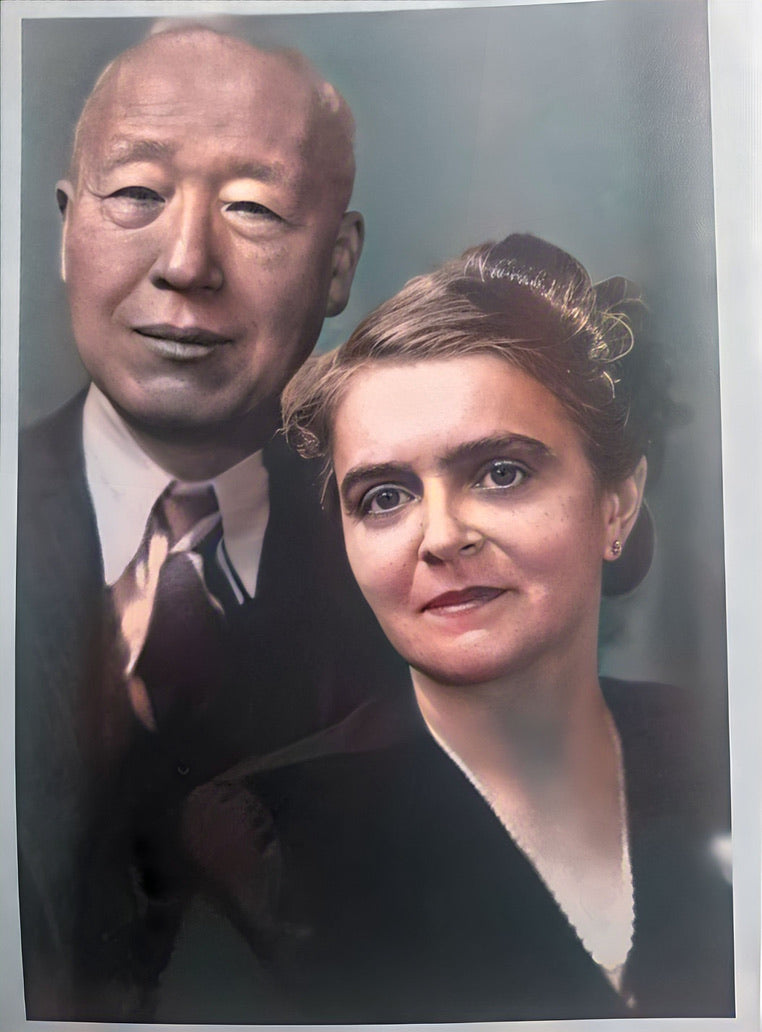
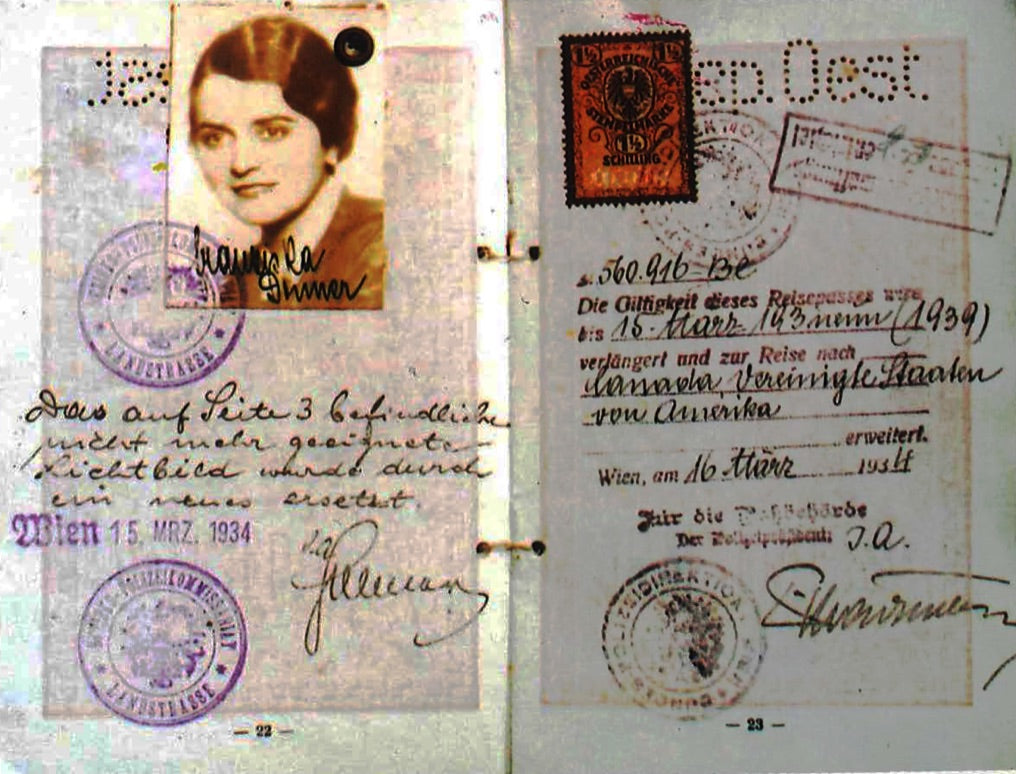
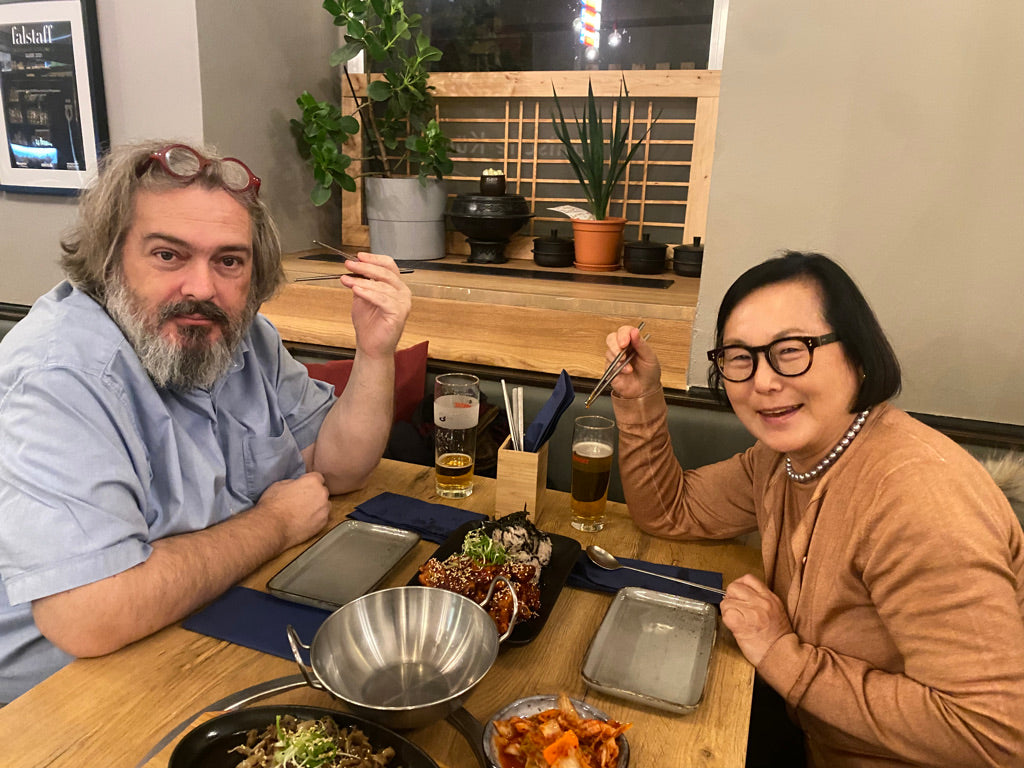
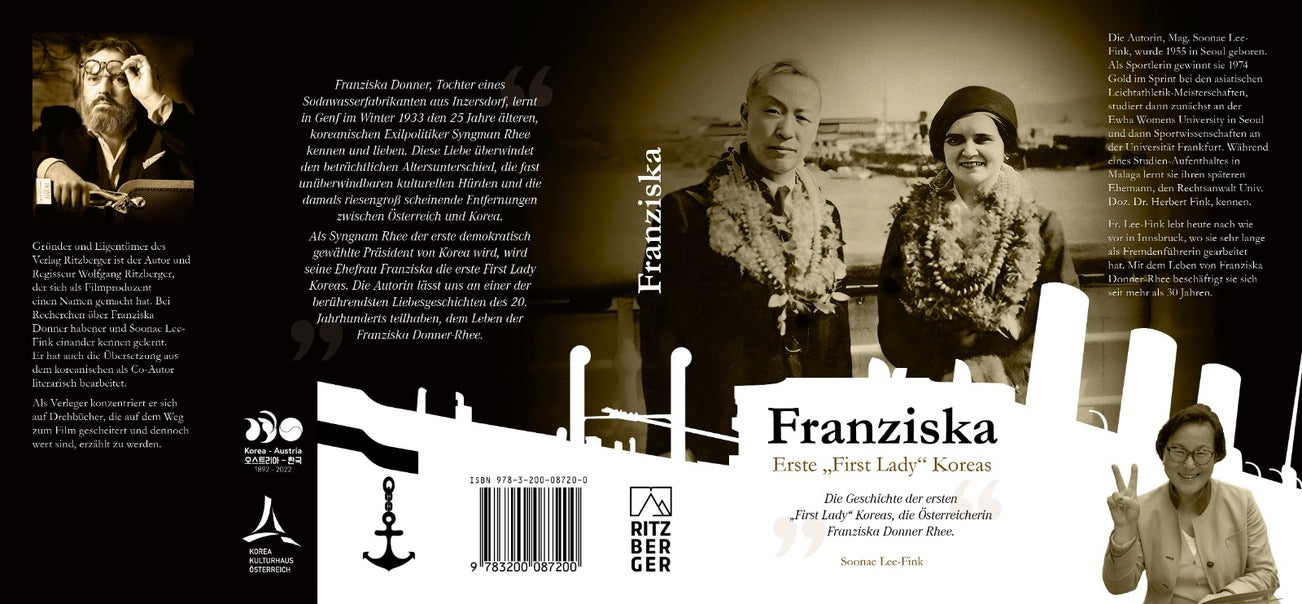
1 comment
Gratulation! Endlich Deutsche Ausgabe! Danke!